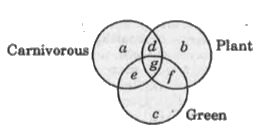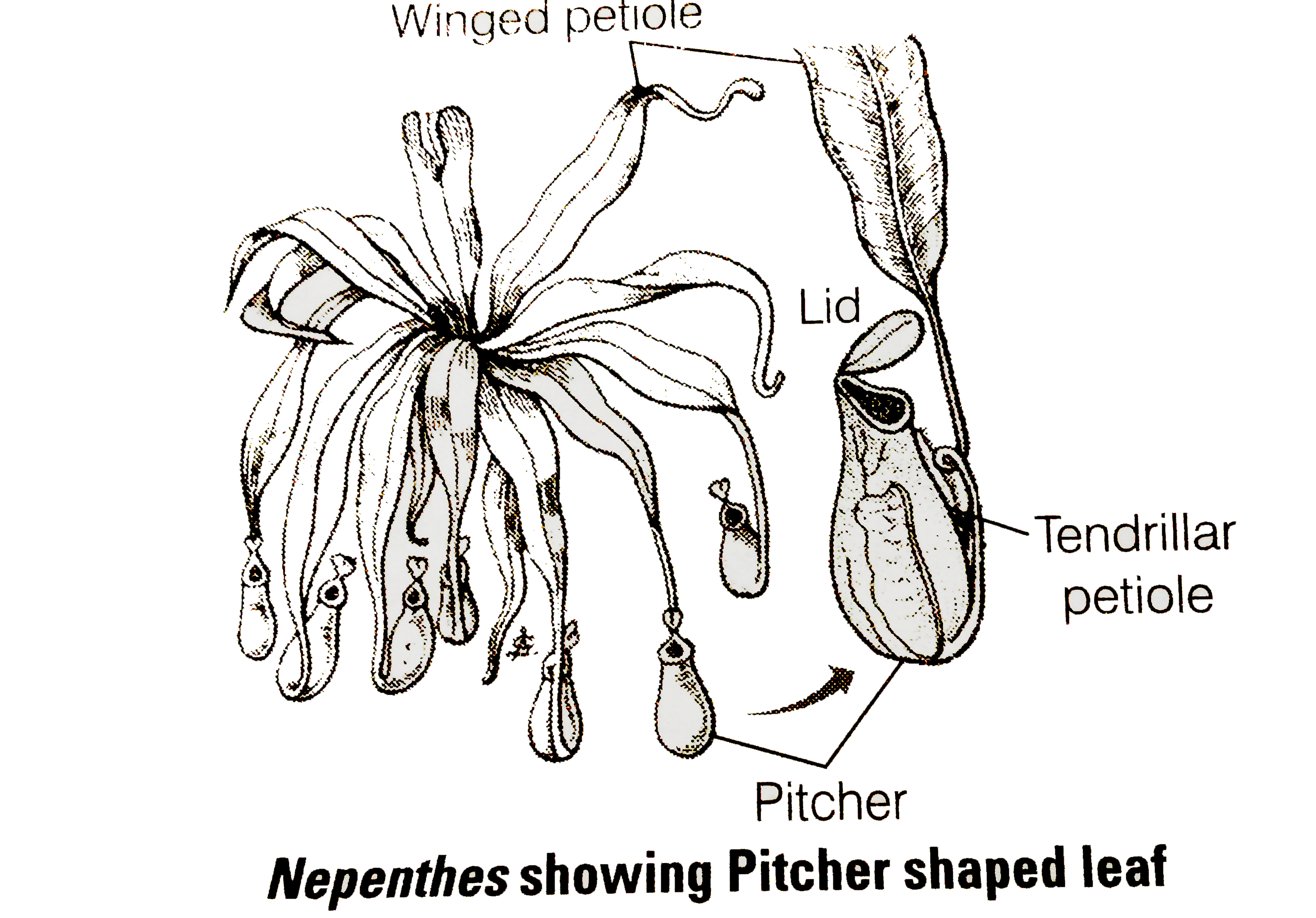All carnivorous plants
are parasites.
depend on animals as a source of carbon.
are incapable of photosynthesis.
obtain supplemental nitrogen from animals.
The correct Answer is:D
Step-by-Step Text Solution:
1. Definition of Carnivorous Plants:
- Carnivorous plants are specialized plants that derive some of their nutrients by trapping and digesting animals, primarily insects and protozoans.
2. Nutritional Source:
- While carnivorous plants obtain nutrients from animals, they are not entirely dependent on them for energy. They still perform photosynthesis to produce their own energy in the form of sugars.
3. Comparison with Parasitic Plants:
- It is important to differentiate between carnivorous plants and parasitic plants. Parasitic plants rely entirely on other plants for their nutrients and energy, whereas carnivorous plants can synthesize their own energy through photosynthesis.
4. Photosynthesis Capability:
- Carnivorous plants are capable of photosynthesis. They produce energy through this process, which contradicts the idea that they are incapable of photosynthesis.
5. Nitrogen Acquisition:
- Carnivorous plants often grow in nitrogen-poor environments, which is why they have adapted to supplement their nitrogen intake by digesting animals. This adaptation helps them thrive in conditions where other plants might struggle.
6. Conclusion:
- Therefore, the statement that all carnivorous plants are parasites is incorrect. They are not dependent on animals for energy, as they can photosynthesize, but they do rely on animals for certain nutrients, particularly nitrogen.
- Carnivorous plants are specialized plants that derive some of their nutrients by trapping and digesting animals, primarily insects and protozoans.
- While carnivorous plants obtain nutrients from animals, they are not entirely dependent on them for energy. They still perform photosynthesis to produce their own energy in the form of sugars.
- It is important to differentiate between carnivorous plants and parasitic plants. Parasitic plants rely entirely on other plants for their nutrients and energy, whereas carnivorous plants can synthesize their own energy through photosynthesis.
- Carnivorous plants are capable of photosynthesis. They produce energy through this process, which contradicts the idea that they are incapable of photosynthesis.
- Carnivorous plants often grow in nitrogen-poor environments, which is why they have adapted to supplement their nitrogen intake by digesting animals. This adaptation helps them thrive in conditions where other plants might struggle.
- Therefore, the statement that all carnivorous plants are parasites is incorrect. They are not dependent on animals for energy, as they can photosynthesize, but they do rely on animals for certain nutrients, particularly nitrogen.
Similar Questions
Knowledge Check
- Question 1 - Select One
Insects captured by carnivorous plants partially meet their requirement of
AOrganic matterBEnzymesCWaterDNitrogen - Question 2 - Select One
In the given figure , which letter represents carnivorous plants which are not green ?
 AdBgCeDf
AdBgCeDf - Question 3 - Select One
The carnivorous plants usually have one of the following specialised organs to catch their prey:
AstemsBbranchesCleavesDmodified roots
Carnivorous plants exhibit nutritional adaptation . Citting an example explain this fact.
 View Solution
View SolutionThe carnivorous plants live in water logged or boggy habitats which are
View SolutionThe carnivorous plants live in water logged or boggy habitats which are
View SolutionAn insectivorous/carnivorous plant is
View SolutionInsectivorous/carnivorous plants live in medium that are defidient in nitrogen. Select a pair of insectivorous plants
View Solution

